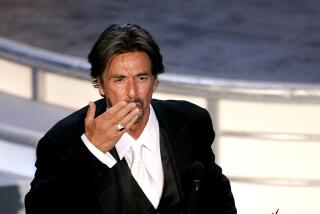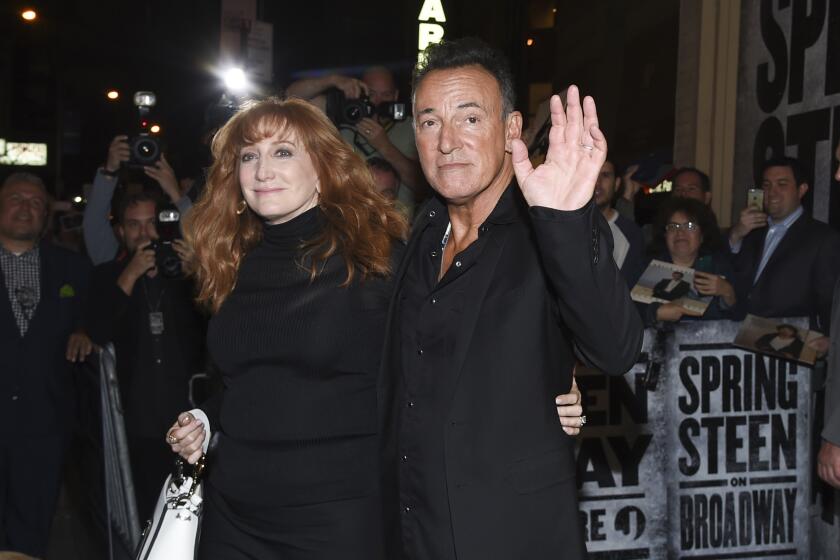A look inside Hollywood and the movies : Mopping Up After the Oscars : ARM TWISTING : Al, Gene, It’s Gonna Be Envelope City--Trust Us on This
Al Pacino and Gene Hackman didn’t have to be dragged to the Dorothy Chandler Pavilion stage to accept their acting Oscars. But both needed a hard sell before they would accept the parts for which they won the prizes.
Pacino’s agent Rick Nicita of Creative Artists Agency recalls the actor’s initial reaction to Bo Goldman’s script of “Scent of a Woman” was that it wasn’t right. The character of a blind, retired Army officer “was tough to connect to . . . and he (Pacino) didn’t have a military background.”
The script had come to Nicita and Pacino’s attention because CAA also represents Goldman and the director-producer of the film, Martin Brest.
“The primary job of the agent is to advise clients,” Nicita says. “I just thought that the quality of the piece, and the talent of Marty Brest, and the expertness of the screenwriter all added up to a role he couldn’t say no to. To me, the character had the potential explosiveness and unpredictability that was perfect for Al.”
Pacino’s initial coolness didn’t faze Nicita. “Al’s very savvy and intuitive. But he needs to go through a certain process. And he tends to like to read scripts out loud . . . with other actors. When he hears those words, he tends to be able to focus in on a piece. So I prevailed upon him to have at least one reading. And this piece sings. That’s when he started to come around.”
In Hackman’s case, producer-director Clint Eastwood had to overcome a flat-out refusal by Hackman to play the role of the mean sheriff in “Unforgiven.”
Hackman’s publicist, Dick Guttman of Guttman Associates Publicity and Marketing, who also works with Eastwood, recalls that Eastwood had Hackman in mind for the part from the beginning. “But I told him that Hackman might be resistant because of the violence in the script.”
Hackman won his best actor Oscar as a cop in the violent 1971 “The French Connection.” But ever since his nomination in 1988’s “Mississippi Burning,” when a clip was shown on the Academy Awards show of him throwing a body through a mirror, he’s been wary of violent roles, Guttman said. “He was upset that they would choose a violent clip to represent his otherwise peaceful character. Gene said, ‘Maybe that’s how they see me.’ ”
Asked how he changed his mind about “Unforgiven,” Hackman said: “I don’t mind being violent in a role, because that’s my job as an actor . . . to re-create and interpret what the author puts on the page. But to be involved in a film that somehow glorifies violence, I’ve done that in the past. And I chose not to do that again. I suppose that was on my mind on my first consideration of ‘Unforgiven.’ I didn’t understand what Clint intended to do with the film.”
Guttman said Eastwood and Hackman talked it over, Eastwood assuring Hackman that the dramatic and intellectual weight of the script would be taken seriously. “They discussed it in terms of ‘The Ox-Bow Incident’ (the 1943 film starring Henry Fonda), which is a protest against violence.”
From then on, Hackman was sold.
More to Read
Only good movies
Get the Indie Focus newsletter, Mark Olsen's weekly guide to the world of cinema.
You may occasionally receive promotional content from the Los Angeles Times.










